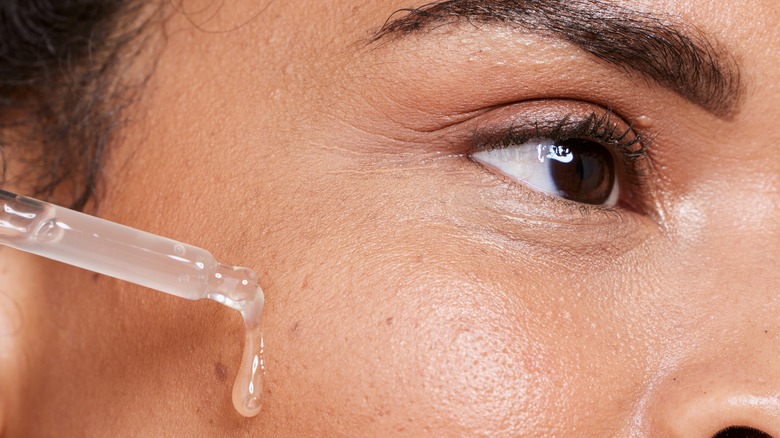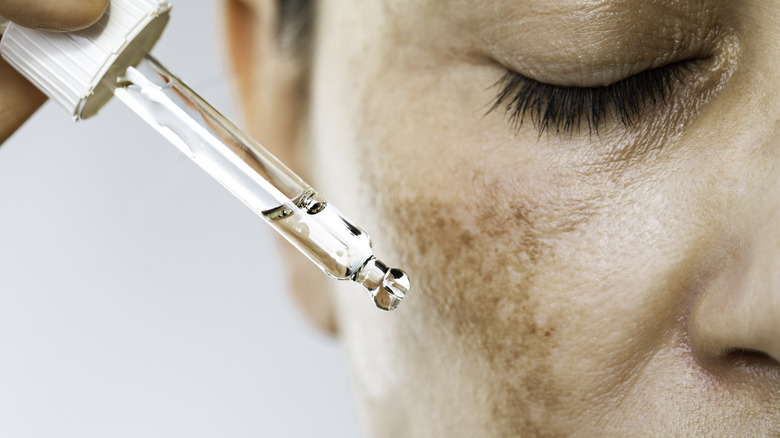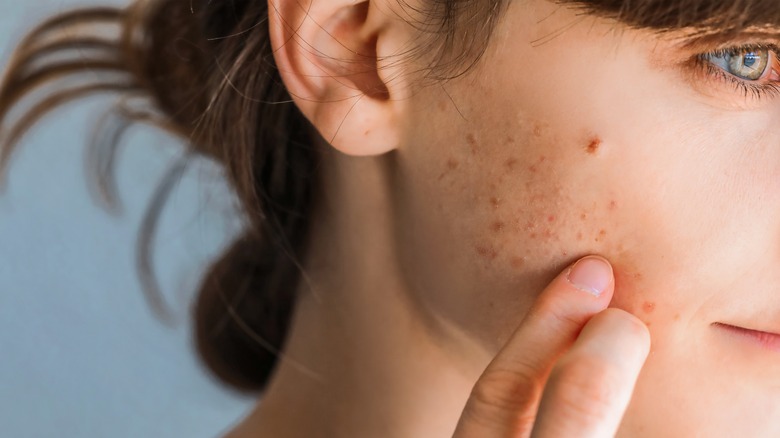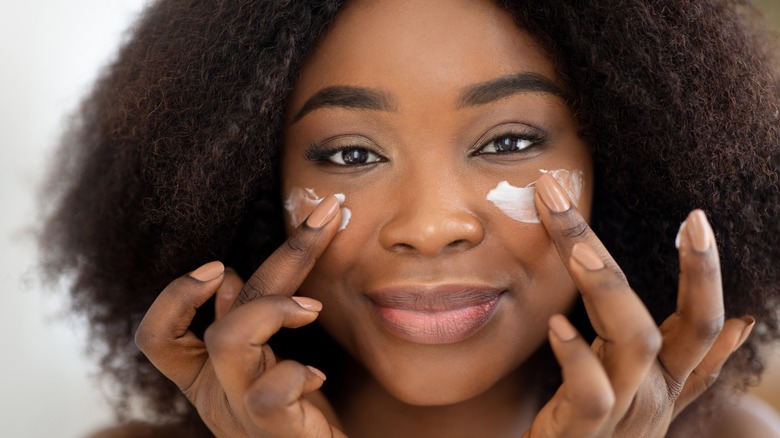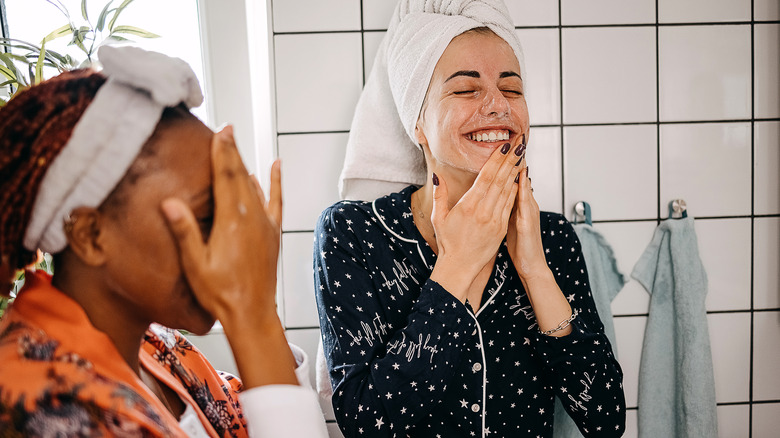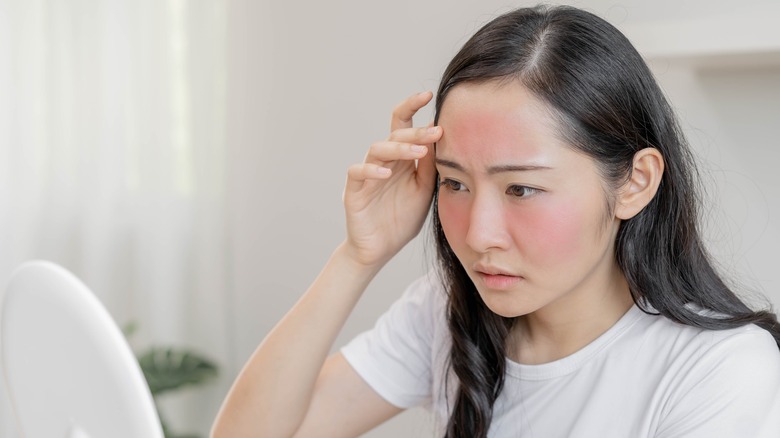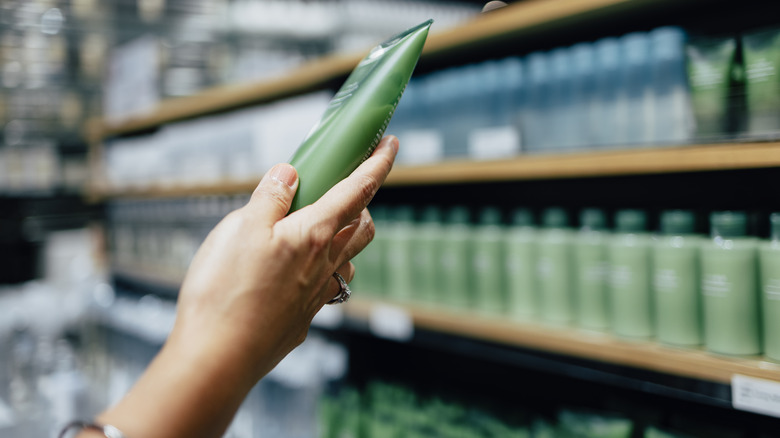Retinol, Retinoids, Retinal: Are They Really All So Different? We Break It Down
We may receive a commission on purchases made from links.
You've probably heard the skincare terms retinol, retinoids, and retinal banded around in the skincare world before. But chances are (at least if you're anything like us), titles like these tend to pass you by and you might have absolutely no idea what each of them means, what they do, and how they're actually different from each other. Or, you may have gone the other way and you've heard those off-putting stories of people who tried too much too fast when it came to retinoids, and didn't exactly have the best experience. But don't worry, because these products are perfectly safe to use on your skin when done the right way, and can give you some stunning results!
It turns out there are actually quite a few stark differences between retinol, retinoids, and retinal, so if you're planning on incorporating any into your skincare routine, it's important you're all clued-up on what's what and which is most likely to be best for your skin's needs.
What is retinol and who can use it?
Let's get into it, then. You're probably most likely to have heard of retinol over retinoids or retinal, as it's been all the rage in skincare products popping up here, there, and everywhere. Retinol is actually a form of vitamin A and is suitable for almost anyone who wants to see a visible improvement in their skin's appearance. Retinol promotes collagen production and has also been known to help with sun damage, fine lines, and wrinkles, so it's a bit of an all-around product when it comes to giving you better skin.
"All skin types normally benefit from adding a retinol into their nighttime routine. Even blemish-prone skins can benefit from the power of vitamin A," formulation and development director at Medik8, Daniel Isaacs, explained to Cosmopolitan, revealing that one of retinol's biggest selling points is that it can also help with clogged pores and ease blemishes. "The only people who shouldn't use retinols are those who are pregnant or breastfeeding, or those on medication which may clash with the vitamin A," he added. "If this is the case, always check with your doctor before starting on retinols." Retinol is thought to be best used on the skin of people who are 30 years old or older, but there's nothing to stop you from using it a little sooner than that to get ahead of the game.
What are retinoids?
Now we know what retinol is, the next step on educating yourself on skincare is to learn what retinoids are. To put things simply, retinol is actually a type of retinoid, with the umbrella term being used to describe a range of different skincare drugs. Retinoids are typically broken down into four categories: retinyl esters, retinol, retinaldehyde, and retinoic acid, with the latter being the most potent and only available via prescription from a doctor. As board-certified dermatologist Dr. Elyse Love told Skin Wellness Dermatology, "[Retinoids] exist on an inverted scale between efficacy and irritability. Of the over-the-counters, retinyl esters are the least potent and most stable, retinol is the in-between, and retinaldehyde (retinal) is the most potent, but most difficult to stabilize," board-certified dermatologist Dr. Elyse Love added.
Retinoids are so popular because they have the ability to change how the skin's cells actually work and are used to treat a range of skin conditions, dermatologist Dr. Karyn Grossman explained to Healthline. Not only that, but they've been proven to improve the skin's appearance, giving people all over the world healthier and more youthful-looking skin.
And what the heck is retinal?
Just to make things extra complicated, there's also such a thing in skincare as retinal, which is also sometimes referred to as retinaldehyde as it combines that ingredient with hyaluronic acid and thermal spring water. Retinal is a newer discovery in the skincare game and tends to be on the stronger side when compared to retinol. Board-certified dermatologist Dr. Matthew Elias opened up about the science behind it to Harper's Bazaar, explaining, "Retinal is the first step retinol undergoes in its transformation to retinoic acid. By using topical retinal, you may be able to see faster results with your topical treatment, as one step in the conversion process has already happened."
Board-certified dermatologist Dr. Natalie Yin, assistant professor of dermatology at Columbia University Medical Center, agreed, sharing that the effects of retinal can sometimes be seen as much as a huge 11 times faster than using retinol. Not only that, but retinal is also thought to be less harsh for the skin when compared to its fellow retinoid. "[Retinal] has been shown to be less irritating in small studies and may be better tolerated [by the skin]," she told Dermstore.
What other types of retinoids are there and what do they treat?
Now we know that retinol is a type of retinoid, what other types are out there? There are tons of different retinoids available, and, while they might be similar and tend to derive from vitamin A, they're usually used to treat different types and severities of skin conditions. While the list of retinoids is vast and ever-changing, here are a few of the most popular ones you're more likely to hear about and what they're used for.
- Adapalene: Often noted as the best option for those with sensitive skin, adapalene is an acne treatment that's believed to cause less irritation than some of its retinoid family members.
- Bakuchiol: Somewhat similar to retinol in the sense that it has anti-inflammatory ingredients, bakuchiol is a gentler, natural, and vegan ingredient that can be used to combat signs of aging including fine lines, wrinkles, and discoloration.
- Retinoic Acid: The active form of vitamin A, retinoic acid is often used to treat skin conditions like discoloration by helping with the production of collagen and elastin production.
- Tretinoin: Tretinoin tends to be used to treat skin conditions like acne which are related to blemishes and breakouts. It's made from Rx retinoids.
- Tazarotene: Like tretinoin, tazarotene is used against acne, while it's also been used in stronger doses for psoriasis.
- Isotretinoin: Usually taken orally, isotretinoin is used to treat more hostile acne. You may know it best under the name Accutane.
Start slow and find out what's best for your skin
If you're ready to incorporate a little something more into your skincare, starting with a weaker retinoid like retinol is usually the best way to go first before you jump into anything stronger. "Most skin types can tolerate a retinol or retinoid," dermatologist Dr. Melissa Kanchanapoomi Levin and founder of Entière, told Byrdie. But you may have to play a bit of a test-and-try game to make sure you find the product that's best for your skin and its needs if you're going for over-the-counter products. "You have to make sure to choose the right retinol/retinoid product and that you are using a non-irritating, gentle skincare regimen," she shared.
Dermatologist Dr. Whitney Bowe recommended starting slowly, because retinoids can sometimes be too harsh for the skin — particularly if you jump right in with something strong. "Balance is critical. Retinol can be very irritating if used too frequently or if the formulation is too strong for your skin," she shared while speaking to Vogue. To try and get all the benefits without any of the negatives, Bowe suggested starting out by using around a pea-sized amount of a product on your face that's no more than 0.03% strength and then working your way up by first applying it two days a week. If you try too much too fast, you can leave yourself open to some nasty side effects.
Retinol, retinoids, and retinal can all have side effects
Of course, retinoids, including retinol, have some very positive effects when it comes to how they can transform your skin, but that doesn't mean there are no potential downsides. Some retinoids can actually be pretty drying on the skin, which can then lead to irritation and itchyness. To combat this, it's a good idea to cut back on the percentage of the active ingredient you go for (many companies offer various different strengths of the same product) when you start out, and then apply it less regularly, or simply use less of it each time if you start to notice any discomfort. Dr. Natalie Yin, professor of dermatology at Columbia University Medical Center, also gave a great tip to Dermstore. "Waiting until the skin is completely dry before applying the medication and folding in a moisturizer afterward can also help minimize irritation," she recommended.
We already know that it's a smart idea to keep applying that sunscreen even in the winter, but that's extra important if you're using retinoids. Retinol in particular can interfere with the skin's ability to deal with the sun's rays and make it extra susceptible to sun damage, which is why Dr. Bowe recommended to Vogue wearing an SPF of 30 or higher at all times. You'll also want to be extra careful if you live somewhere with a lot of sun, or are planning on taking a sun-filled vacation.
Be careful when mixing your beauty products
Retinoids, and therefore retinol and retinal by association, don't mix well with everything, so it's worth reading up on what will and won't mix before you jump right in. As Dr. Lenvin told Byrdie, "Benzoyl peroxide and alpha hydroxy acids can deactivate certain retinoids such as tretinoin. Be careful with layering products, and make sure to discuss your routine with your dermatologist." Board-certified dermatologist and founder of Dr. Loretta skincare, Dr. Loretta Ciraldo, also shared that products containing alcohol or witch hazel should also be avoided if you're incorporating retinol or similar product into your routine, because they can be known to cause irritation which certain retinoids could only intensify.
Make sure you properly read all the ingredients in your daily skincare routine before you start, because it's not recommended that you overdo it when it comes to the retinoids. If you have a moisturizer that already has retinol in, for example, you may not want to add more of the ingredient into your routine with a serum — unless you're sure your skin can handle it and you've worked your way up slowly to the extra dose.
Where to get retinoids, including retinol and retinal
Where you can get your hands on retinoids is going to depend on what works best for your skin and the strength you're looking for. Before trying out anything new, we'd recommend booking an appointment with your dermatologist to get some expert advice so you'll know exactly what you're looking for. If you'd prefer to do this from home, there are a number of online companies that offer video consultations.
Your doctor's suggestions may include a prescription, which then opens up a few different options for you in terms of retinoids. A few options are only available with a prescription including tretinoin, tazarotene, and isotretinoin. Many prescription-only retinoids come in different strengths depending on your needs, while there are several companies that have their own certified dermatologists to provide you with a skin consultation and the products you need all in one go.
As for retinol and retinal, because they're on the weaker end of the retinoid spectrum, you can pick these up over the counter. A number of drug stores sell retinol products in different forms, though you're probably most likely to find it on its own as a serum. If you're looking to use fewer products in your skincare routine, though, you can also find retinol as an ingredient in some cream moisturizers.
How much you pay will all depend on what you go for
Exactly how much money you can expect to pay for retinoid products will be totally dependent on which one you need, how potent it is, and whether you're going to use insurance or get over-the-counter products. As board-certified dermatologist, Dr. Corey L. Hartman told Skin Wellness Dermatology, "Prices vary for retinoids, especially for prescriptions, based on insurance coverage. Many effective [over-the-counter] retinols are available at your local drugstore at a lower price point, but you can also shop high-end retinol products for hundreds of dollars."
But, just like with other skincare products on the market that don't contain retinoids, how much you pay doesn't always mean you'll be getting a higher dose of the ingredient you're after — nor does it necessarily mean it'll be perfect for your skin. In the way that a simple drugstore moisturizer can keep your skin feeling healthy while a $100 top-shelf product might not have the same effect, the same can be said for retinoid-containing products. Board-certified dermatologist Dr. Morgan Rabach explained, "It's mostly about branding and positioning of the product in the market, and not about quality of ingredient."
